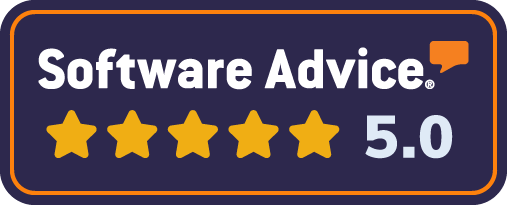Software agents are transforming the marketing landscape, automating tasks and boosting efficiency like never before. At Emplibot, we’ve seen firsthand how these intelligent tools can revolutionize marketing workflows.
From content creation to customer segmentation, software agents are reshaping how marketers approach their daily tasks. In this post, we’ll explore the power of these digital assistants and how they’re driving measurable results for businesses across industries.
Contents
ToggleWhat Are Software Agents?
Defining Software Agents in Marketing
Marketing automation refers to the use of software to automate marketing efforts across multiple channels such as websites, social media, email and others. These intelligent programs operate autonomously, executing specific marketing functions without constant human oversight. Unlike traditional marketing tools that require manual input and management, software agents can learn, adapt, and make decisions based on real-time data and predefined goals.
The Evolution of Marketing Automation
Marketing automation has progressed from simple email schedulers to sophisticated AI-driven systems. Software agents stand at the forefront of this evolution, capable of handling complex marketing tasks that previously required significant human intervention. These agents analyze customer behavior patterns, segment audiences, and personalize content at scale – all in real-time.
Practical Applications in Marketing
Software agents transform content marketing strategies. They conduct keyword research, generate blog posts, and optimize content for SEO – tasks that traditionally consumed hours of a marketer’s time. The applications extend beyond content creation:
- Monitor social media for brand mentions and sentiment analysis
- Adjust ad bids in real-time based on performance metrics
- Personalize email campaigns by analyzing individual user behavior
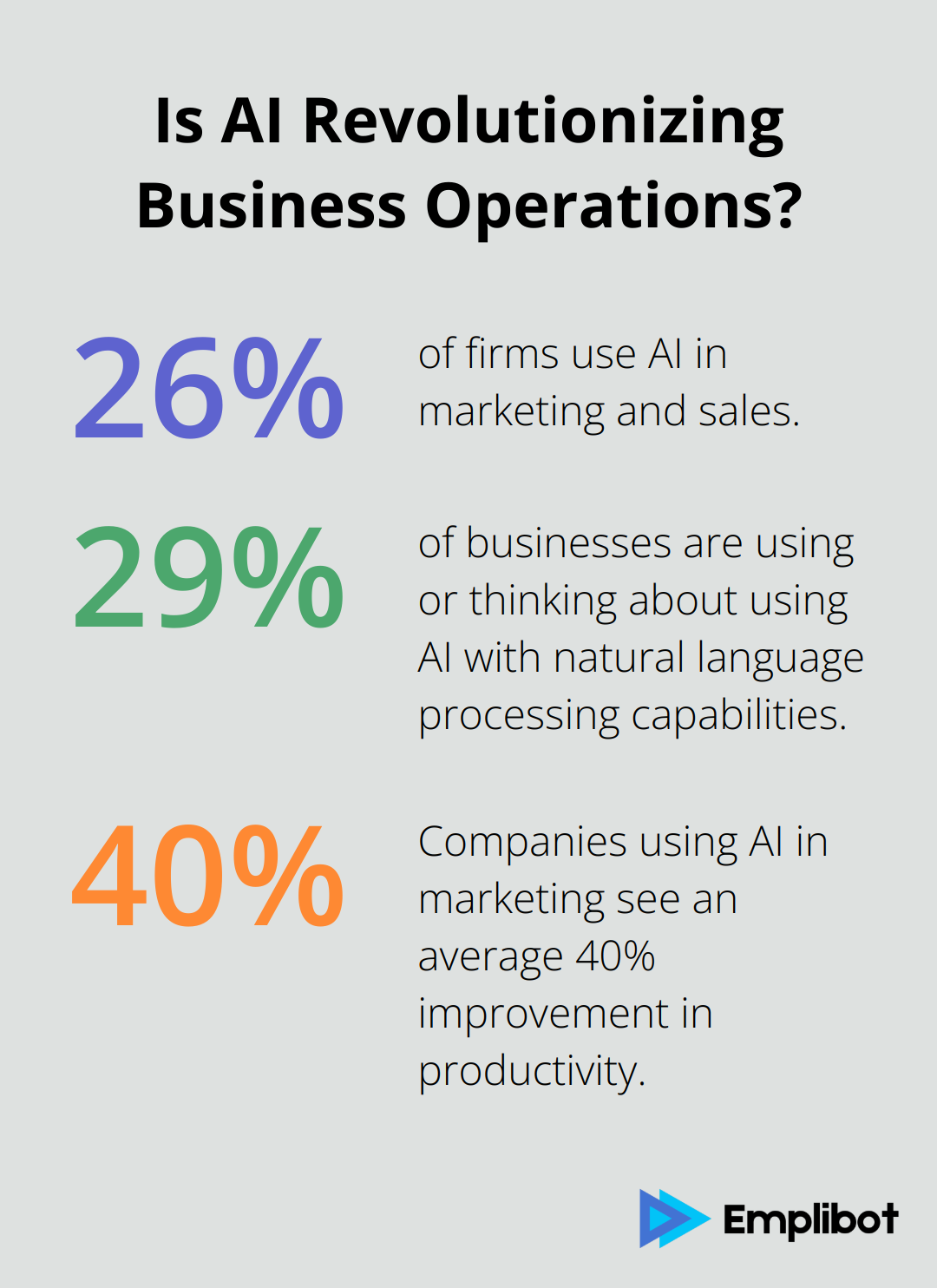
According to BluTree Digital, 26% of firms use AI in marketing and sales, with 22% using chatbots or virtual assistants. Additionally, 29% of businesses are using or thinking about using AI with natural language processing capabilities.
Measurable Benefits for Marketers
The impact of software agents on marketing workflows proves significant and quantifiable. A study by McKinsey found that AI technologies (including software agents) can potentially create $1.4 to $2.6 trillion of value in marketing and sales. For individual businesses, this translates to:
- Time savings: Marketers report saving up to 30% of their time by automating routine tasks
- Improved ROI: Companies using AI in marketing see an average 40% improvement in productivity
- Enhanced personalization: 79% of organizations using AI in marketing report increased customer satisfaction due to more personalized experiences
Choosing the Right Software Agent
While the benefits appear clear, selecting the right software agent for your specific needs remains paramount. Some solutions specialize in content marketing automation, offering comprehensive tools for businesses looking to streamline their blog and social media management. Others focus on data analysis or customer segmentation.
The capabilities of software agents position them not just as tools, but as intelligent partners in marketing strategy. Their ability to process vast amounts of data, make informed decisions, and execute complex tasks autonomously transforms the marketing landscape. This transformation allows human marketers to focus on high-level strategy and creative thinking.
As we move forward, we’ll explore how these software agents automate specific marketing tasks, revolutionizing workflows and driving measurable results across various industries.
How Software Agents Automate Marketing Tasks
Software agents revolutionize marketing workflows by automating a wide range of tasks. These intelligent tools handle everything from content creation to customer segmentation, allowing marketers to focus on strategy and creativity.
Content Creation and Curation Streamlined
Content creation often consumes significant time in marketing. AI content generation tools can produce a variety of content types, including articles, product descriptions, social media postings, and email content. These AI-powered tools analyze top-performing content across the web and generate ideas for new pieces that will likely resonate with your audience.
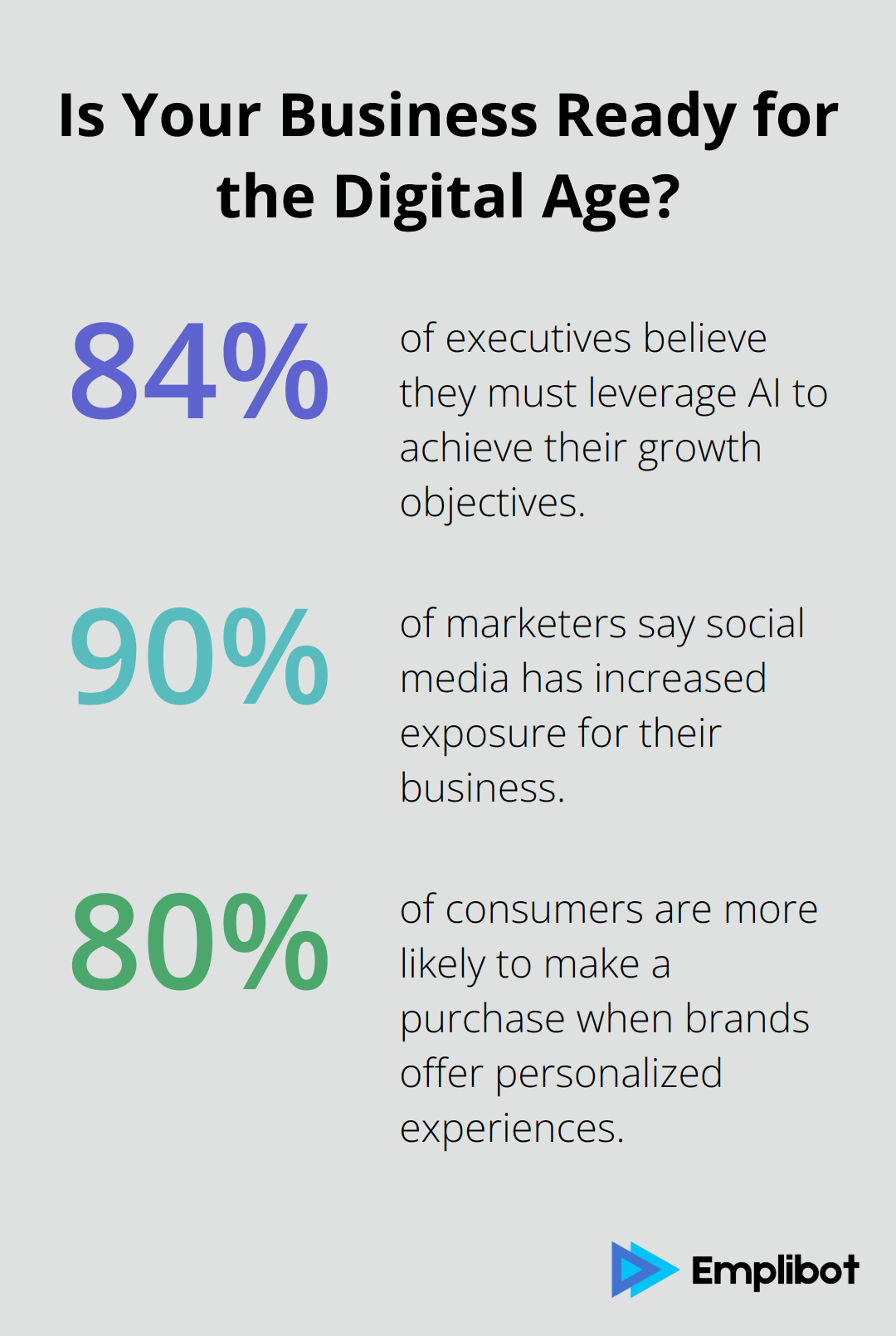
A study by Accenture reveals that 84% of executives believe they must leverage AI to achieve their growth objectives. This statistic underscores the importance of AI in content marketing strategies.
Social Media Management Optimized
Software agents excel in social media management. These tools schedule posts, analyze engagement metrics, and respond to customer inquiries in real-time. They determine the best times to post on different platforms, ensuring maximum visibility and engagement.
A report by Sprout Social found that 90% of marketers say social media has increased exposure for their business (highlighting the importance of effective social media management). Software agents monitor brand mentions and sentiment across social networks, allowing marketers to quickly address issues or capitalize on positive feedback.
Customer Experiences Personalized at Scale
Personalization is key to modern marketing success, but implementation at scale challenges marketers without automation. Software agents analyze vast amounts of customer data to create detailed segments and deliver tailored experiences across all touchpoints.
A study by Epsilon found that 80% of consumers are more likely to make a purchase when brands offer personalized experiences. Software agents make this level of personalization possible by processing data in real-time and making instant decisions about which content or offer to show each individual customer.
Email Marketing Campaigns Supercharged
Email remains one of the most effective marketing channels, and software agents make it even more powerful. These tools automatically segment email lists, personalize content, and optimize send times for maximum open rates.
According to Campaign Monitor, marketers who used segmented campaigns noted as much as a 760% increase in revenue. Software agents remove the guesswork from email marketing by continuously testing and optimizing campaigns based on real-time performance data.
The impact of software agents on marketing workflows proves significant and quantifiable. A study by McKinsey found that AI technologies (including software agents) can potentially create $1.4 to $2.6 trillion of value in marketing and sales. For individual businesses, this translates to time savings, improved ROI, and enhanced personalization.
As we explore the real-world applications of software agents in marketing, we’ll see how these powerful tools drive measurable results across various industries.
Real-World Success Stories of Software Agents in Marketing
E-commerce Engagement Boost
A leading e-commerce retailer implemented software agents to personalize product recommendations and email campaigns. The result? An increase in customer engagement. The software agents analyzed customer browsing history, purchase patterns, and demographic data to deliver hyper-targeted product suggestions and email content. This level of personalization led to higher click-through rates and conversions (demonstrating the power of AI-driven marketing automation).
Media Content Creation Revolution
A major digital media company leveraged software agents to streamline its content creation process. The AI-powered tools analyzed trending topics, conducted keyword research, and generated article outlines. This approach allowed the company’s writers to focus on adding depth and unique insights to the content. As a result, the media company saw an increase in organic traffic and social media shares within six months of implementation.
Finance Sector Ad Spend Optimization
A financial services firm utilized software agents to optimize its digital advertising campaigns. The AI tools continuously analyzed ad performance across multiple platforms, adjusting bids and targeting parameters in real-time. This dynamic approach led to improvements in cost per acquisition and conversion rates. The firm’s marketing team could focus on high-level strategy while the software agents handled the complex, data-driven decisions.
ROI of Software Agents in Marketing
The return on investment of implementing software agents in marketing is clear. A study found that 78% of polled organizations projected that spend on AI marketing technologies would increase over the next 12 months by 5% or more.
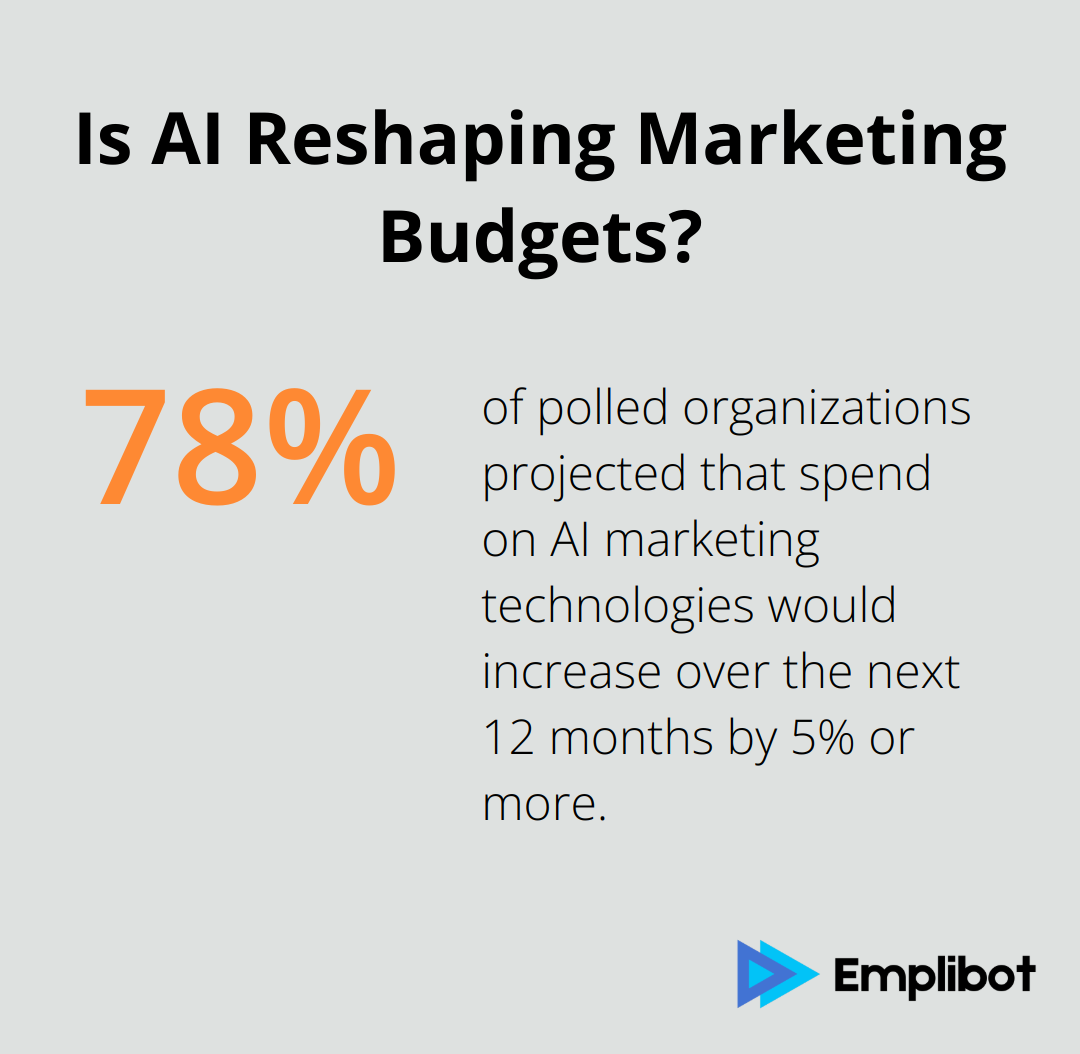
Moreover, high-performing marketing teams are more likely to use AI in their marketing strategies compared to underperformers. This statistic underscores the competitive advantage that software agents provide in today’s digital landscape.
Cross-Industry Impact
These success stories are not outliers. Businesses across sectors see similar results by integrating software agents into their marketing workflows. From healthcare to hospitality, these intelligent tools prove their worth by driving efficiency, enhancing personalization, and ultimately boosting bottom-line results.
The potential of software agents in marketing appears boundless. With advancements in natural language processing and machine learning, these tools will become even more sophisticated (offering marketers unprecedented capabilities to connect with their audiences and drive business growth).
Final Thoughts
Software agents have transformed marketing workflows, automating complex tasks and allowing marketers to focus on strategy. These intelligent tools handle content creation, customer segmentation, and more, delivering tangible benefits across industries. The future of marketing will see software agents play an even larger role in predictive analytics and personalization.
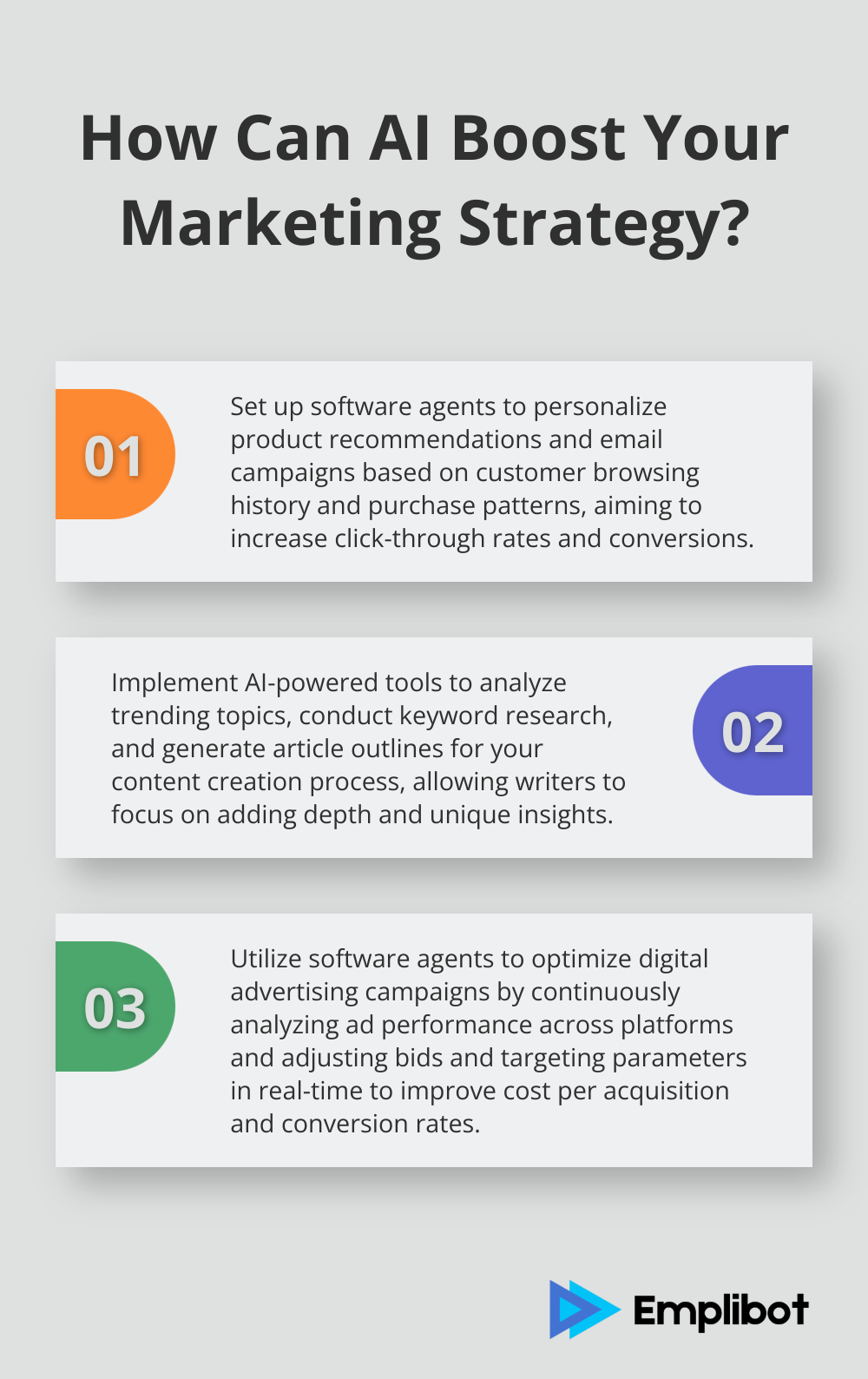
Marketers who want to leverage software agents should start with time-consuming, repetitive tasks before expanding to more complex functions. Choosing the right tools for specific needs is essential. Emplibot offers a comprehensive solution for content marketing automation that streamlines processes and drives measurable results.
As the marketing landscape evolves, software agents will become increasingly important for maintaining competitiveness. These intelligent tools empower marketers to create more effective, personalized campaigns that resonate with target audiences. The future of marketing is here, and software agents power it.






![Will AI Kill Blogging? [What You Need To Do Today]](https://wp.emplibot.com/wp-content/uploads/emplibot/ai-kills-blogging-1751008068-768x456.jpeg)



